Main Space Exhibition /
Memory Lane
Tangent Collective
August 30 – October 19, 2024
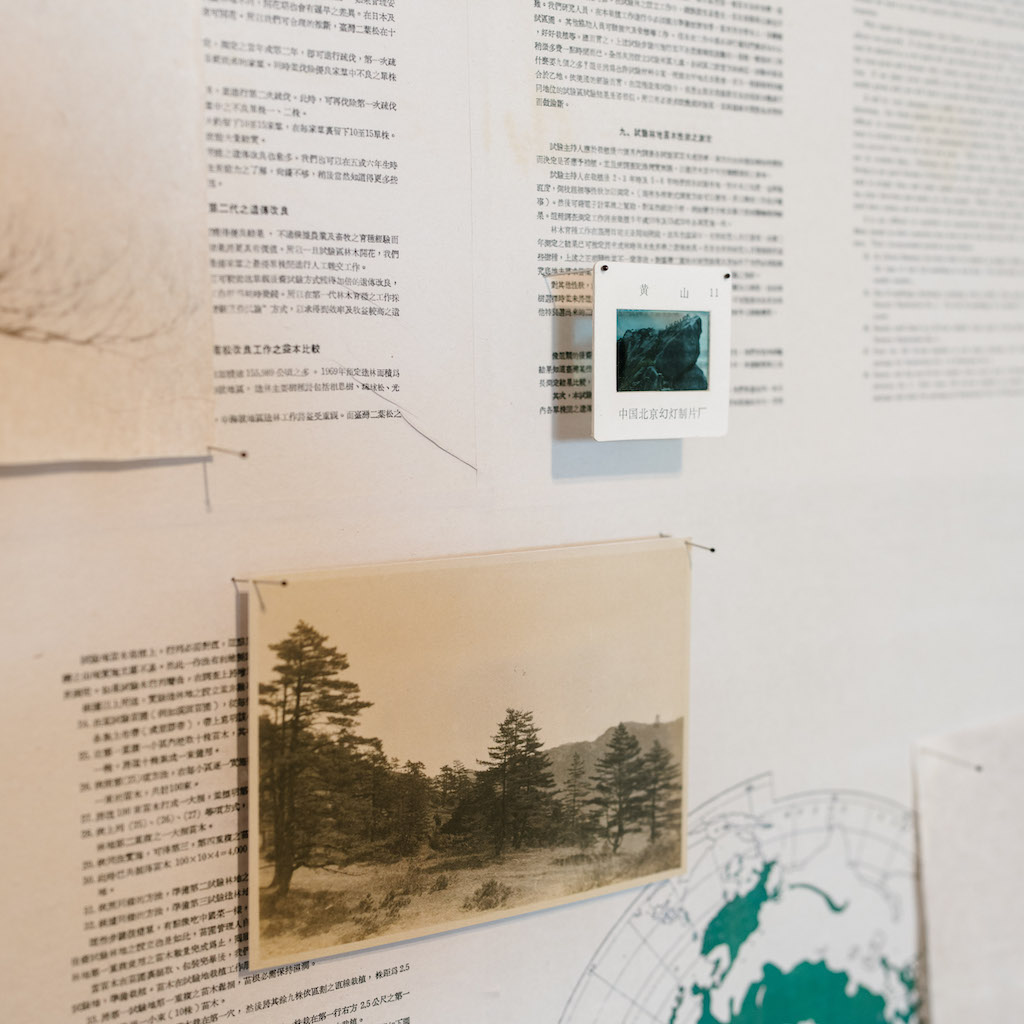
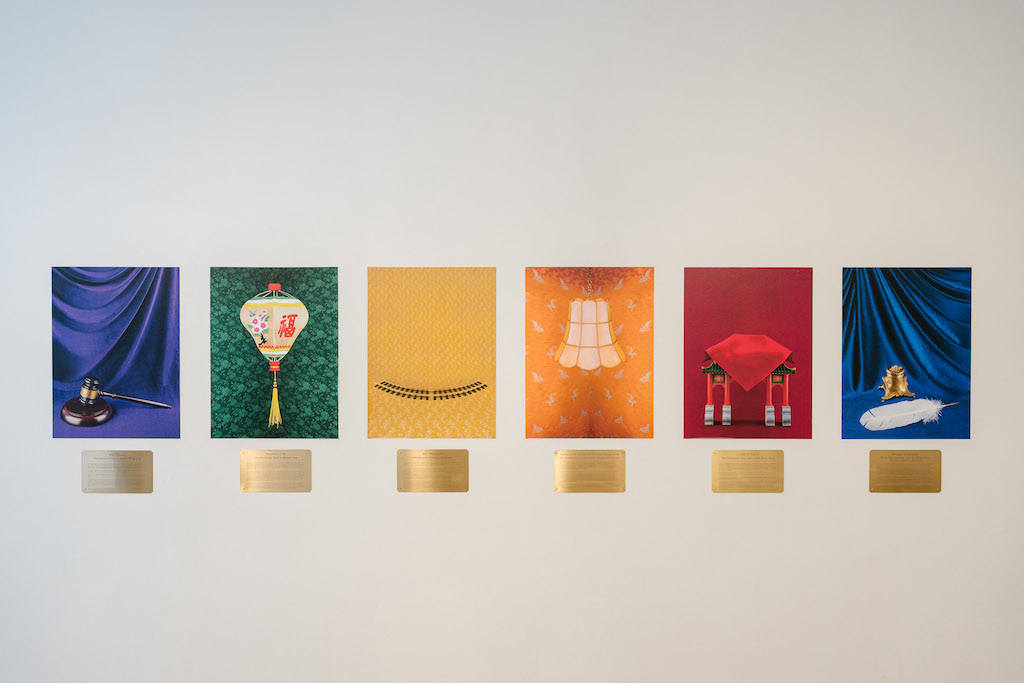

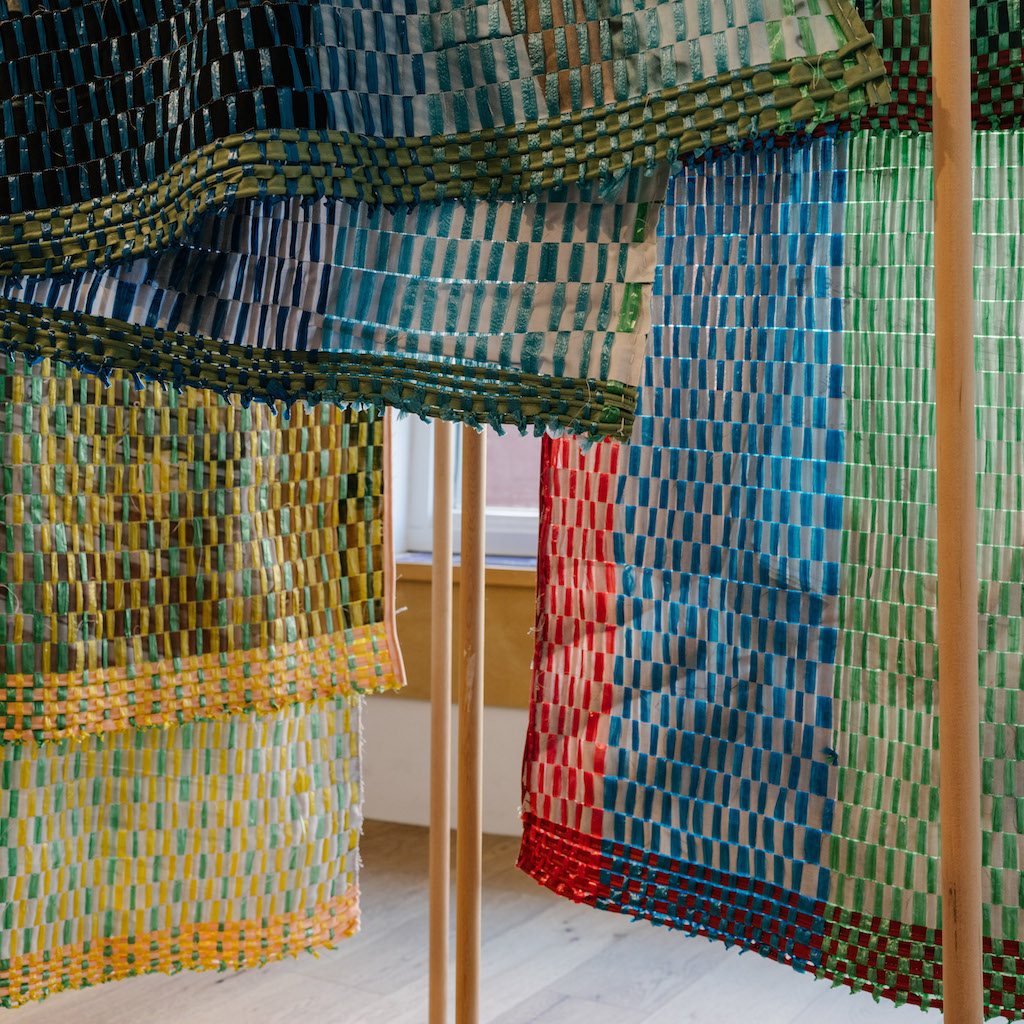
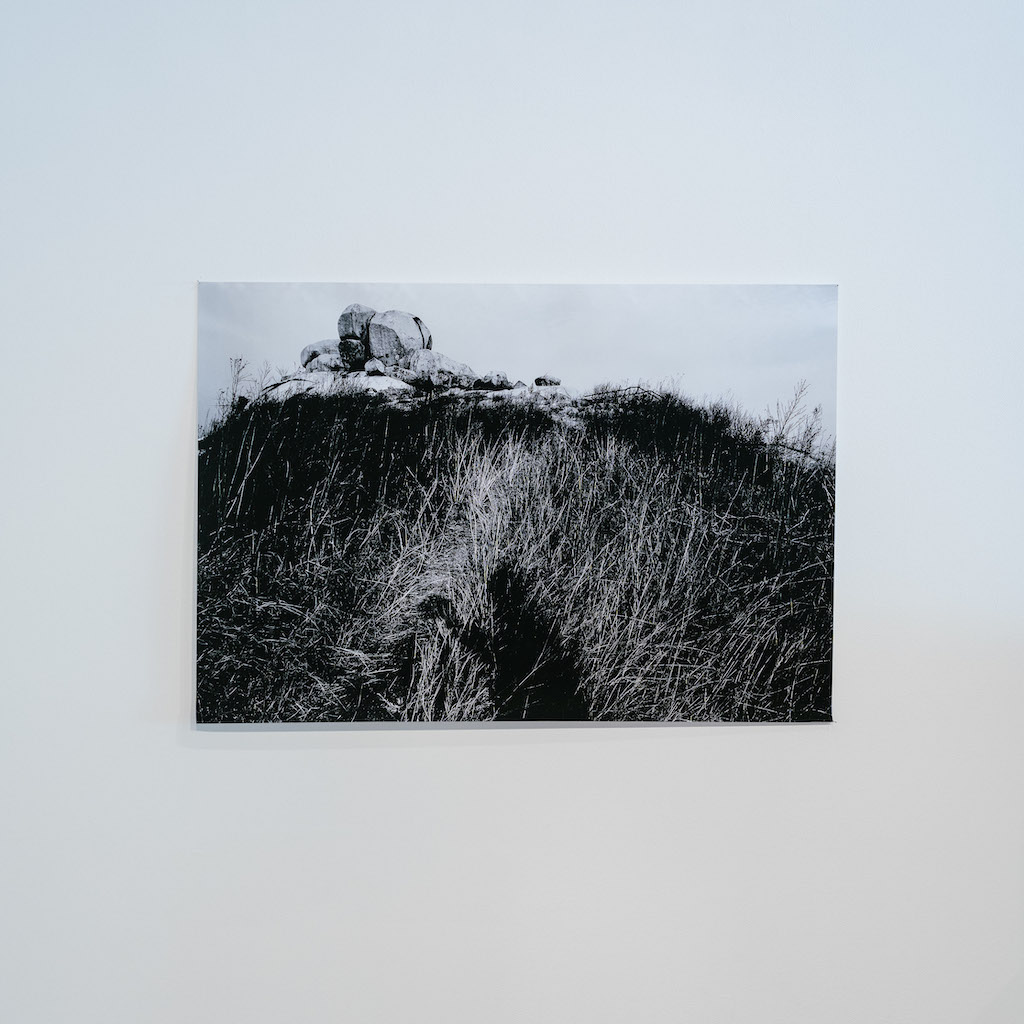
Andong Zheng, Lan “Florence” Yee, Beichen Zhang, Shellie Zhang, Yuxiang Dong
Curated by Tangent Collective
(Brubey Hu & Simon Li)
Curated by Tangent Collective
(Brubey Hu & Simon Li)
Documentation by Danny Luong
“All memory is individual, unreproducible—it dies with each person. What is called collective memory is not a remembering but a stipulating: that this is important, and this is the story about how it happened, with the pictures that lock the story in our minds.”
—Susan Sontag, Regarding the Pain of Others
In both its glaring proximity and opaqueness, memory is in itself a contradiction, like an image and picture, enacting both as a storage and a barricade of the past. In the exhibition, the works of Yuxiang Dong, Lan “Florence” Yee, Beichen Zhang, Shellie Zhang, and Andong Zheng pay homage to memory in all its disjunctures, with its irreproducibility from a personal level to the stipulated qualities from a collective perspective, memory is at once a site of relief as well as struggle.
Both Lan “Florence” Yee and Beichen Zhang deploy gestures of reconciliation with loss. While Lan’s sensual gesture introspects an accelerated loss of information through the gradual reproduction of mundane and familial memories, Beichen’s nostalgia is attached to looted objects whose past was rendered increasingly inaccessible through colonial extraction. Moreover, by scaling “the guest greeting pines” as a manipulated apparatus of the empire, Andong brings forth issues of mass censorship and epistemological control in close proximity to the cultural imaginary of Pinus hwangshanensis (Huangshan Pine), reorienting the quotidian act of seeing as a political destination that deconstructs engrained imperial sentiment sitting behind practices of botanical taxonomy. Lastly, the works of Yuxiang Dong and Shellie Zhang unearth the racial economy of archives, in which the historical fabrication of a racialized imaginary of Chinese immigrants continues to haunt the contemporary portrayals of that past.
The annal of history isn’t as linear as it seems, but full of twists and turns. Our nostalgia allures poignant attempts to resituate the affinities with our past, walking the ambiguous lane of the personal and the collective that weaves into each other’s constellations. In the process of retrieval, we cross paths with sites unseen and lanes unventured, distorting our visions, rendering its parts inaccessible, chiselling parts more lucid.

For Shellie Zhang’s full
Believe it or Not
text click ︎here
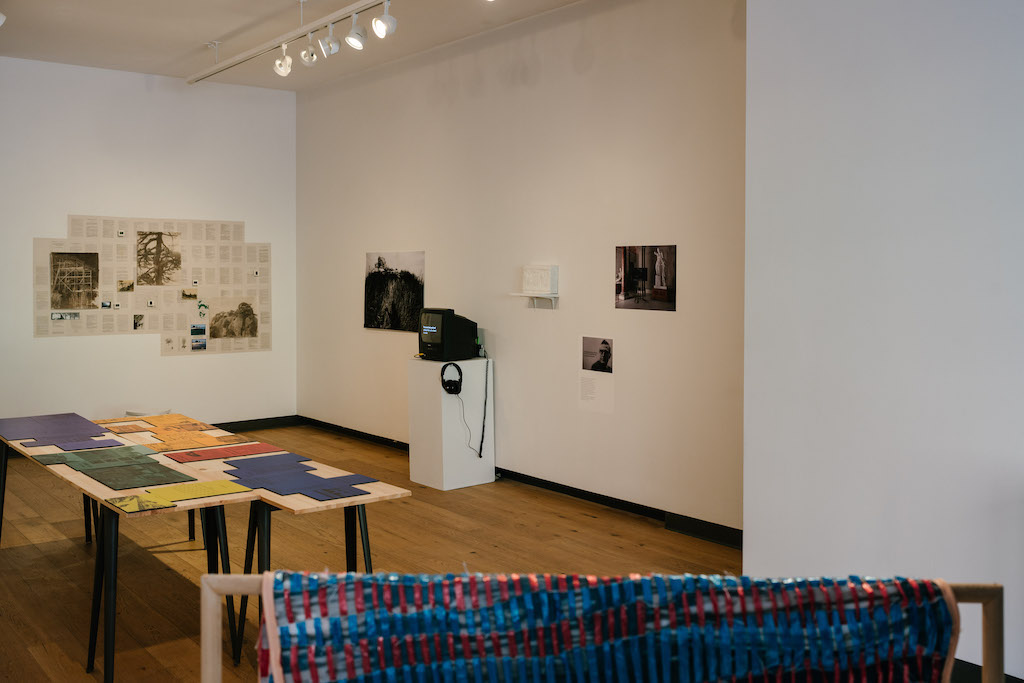
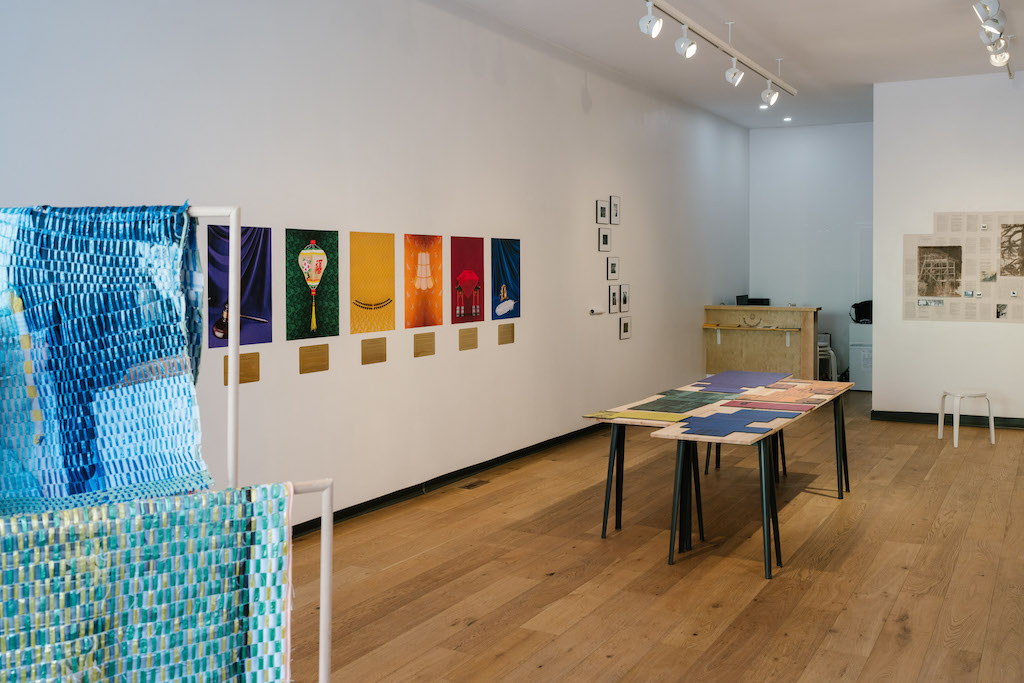
Founded in 2021, Tangent Collective is a nomadic artists' and curators' collective maneuvering in Toronto/Tkaronto and China. It incubates cross-disciplinary dialogues and research-based practices in contemporary arts, surrounding issues of postcolonial studies, decolonization, and global infrastructure within the greater Chinese diaspora. The collectives’s collaborative works and curatorial projects have been shown internationally, which include the Curatorial Awards at Jimei x Arles International Photography Festival, Xiamen, China (2022); Durian-Durian: the First Trans-Southeast Asia Triennial, Guangzhou, China (2023); Borderless, Stateless, Trinity Square Videos, Toronto, Canada (2023); If a tree falls in a forest, Sansheng Art Space, Markham, Canada (2024), among others.
tangentcollective.com
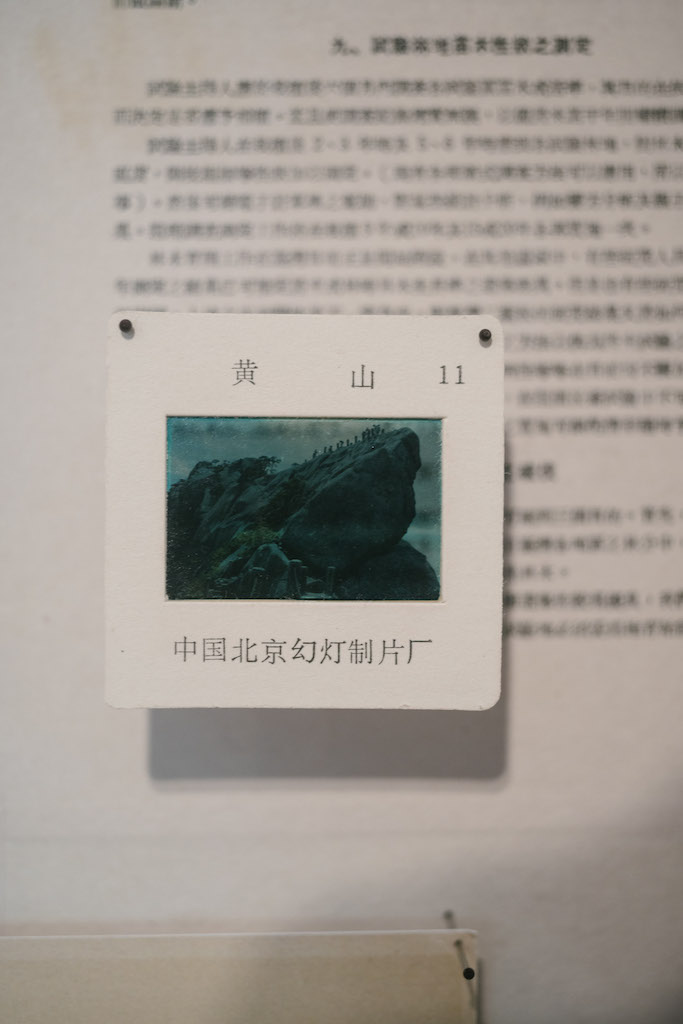

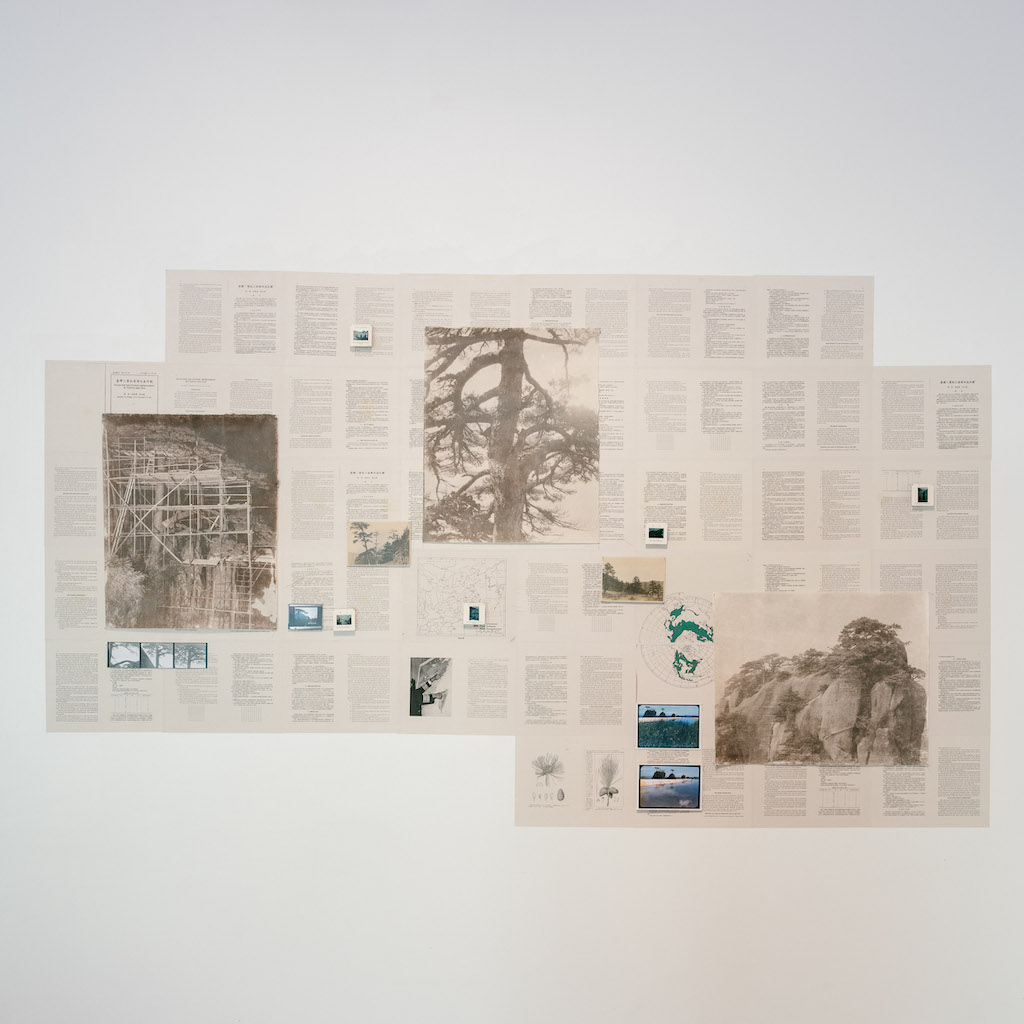
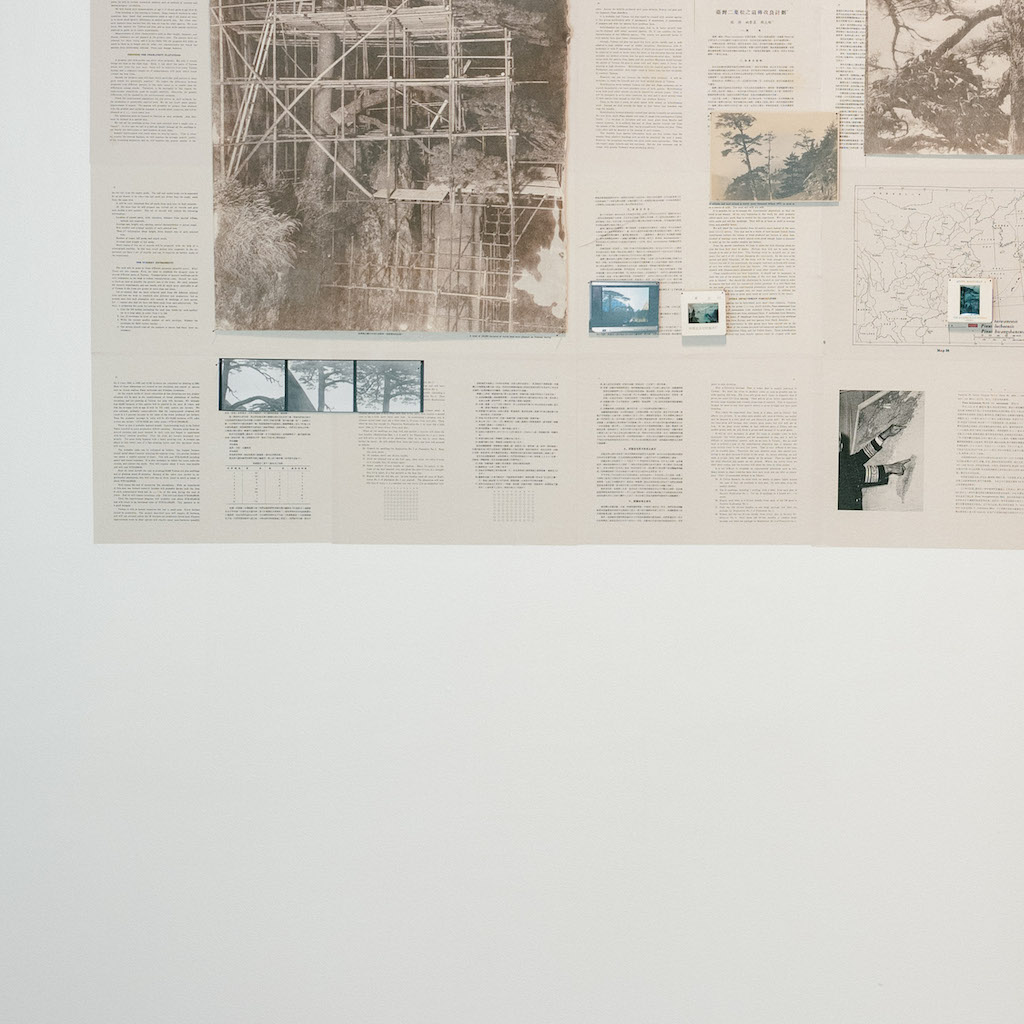
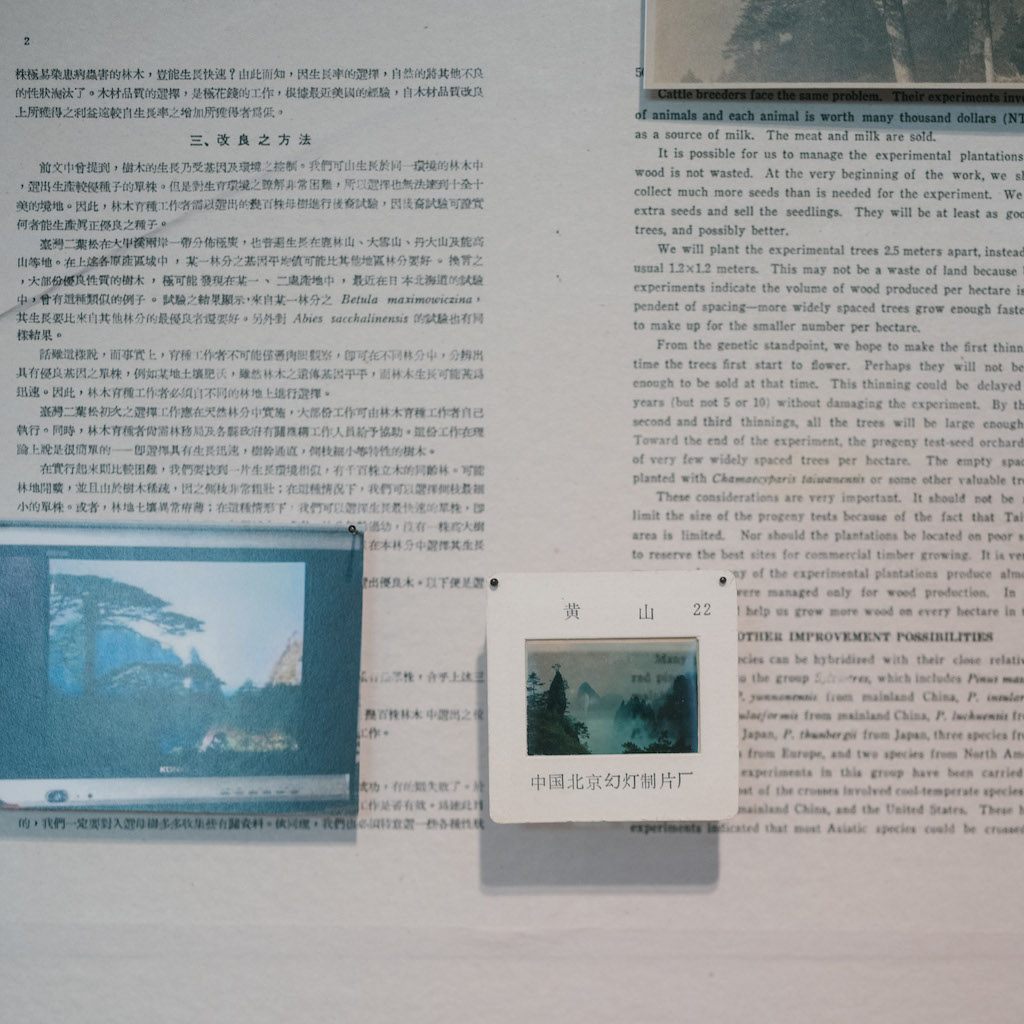
I grew up in the native region of the Huangshan pine. A once fortuitous encounter with one of them at the summit of Mount Huangshan led me to a plaque bearing a Latin plant name: Pinus Taiwanensis Hayata. Tracing this historical thread of botanical taxonomy, a controversy across the 20th century gradually unfolded regarding the naming of three closely related taxa—Pinus hwangshanensis Hsia, Pinus taiwanensis Hayata, and Pinus luchuensis Mayr. The imperial knowledge lineage illuminated how these taxa were defined within the framework shaped by the colonial contexts of botanical studies at its time. Amidst the paradox between following these existing knowledge structures and striving to transcend them, I embark on a journey to the habitats of these pine trees.
From the Last Glacial Maximum to the present, the rising sea levels gradually submerged the land bridges that link the habitats of these closely related species. Long before the expeditions, collections, naming, and mapping endeavours of Heinrich Mayr, Bunzō Hayata, and Wei-Ying Hsia, the natural history of these habitats had already unveiled profound connections between these species.
As I confronted these East Asian pine landscapes in person, I reverted to introspection on the gesture of looking itself. Operating in the gap between knowledge in mind and sensory input on-site, I aim to reconstruct the composite time-space of these pine landscapes from the vantage point of an individual with roots in East Asia.
Andong Zheng (b. 1992, Hefei) lives and works in The Hague, Netherlands. He received his MFA in Photography from the Rhode Island School of Design in 2019 and is currently pursuing studies in the Master Photography & Society program at the Royal Academy of Art, The Hague. With a background in engineering, Zheng was trained to focusing on micro details within strict causal frameworks but often found himself doubting macro structures. Inspecting and destabilizing are his frequent gestures to engage with the external world photographically. He is curious about how images traverse the boundaries of rationality while refusing to simplify his practice to the mapping of established knowledge systems. His recent work investigates the intersection of botanical studies (with its colonial past) and contemporary geopolitical contexts.
From the Last Glacial Maximum to the present, the rising sea levels gradually submerged the land bridges that link the habitats of these closely related species. Long before the expeditions, collections, naming, and mapping endeavours of Heinrich Mayr, Bunzō Hayata, and Wei-Ying Hsia, the natural history of these habitats had already unveiled profound connections between these species.
As I confronted these East Asian pine landscapes in person, I reverted to introspection on the gesture of looking itself. Operating in the gap between knowledge in mind and sensory input on-site, I aim to reconstruct the composite time-space of these pine landscapes from the vantage point of an individual with roots in East Asia.
Andong Zheng (b. 1992, Hefei) lives and works in The Hague, Netherlands. He received his MFA in Photography from the Rhode Island School of Design in 2019 and is currently pursuing studies in the Master Photography & Society program at the Royal Academy of Art, The Hague. With a background in engineering, Zheng was trained to focusing on micro details within strict causal frameworks but often found himself doubting macro structures. Inspecting and destabilizing are his frequent gestures to engage with the external world photographically. He is curious about how images traverse the boundaries of rationality while refusing to simplify his practice to the mapping of established knowledge systems. His recent work investigates the intersection of botanical studies (with its colonial past) and contemporary geopolitical contexts.


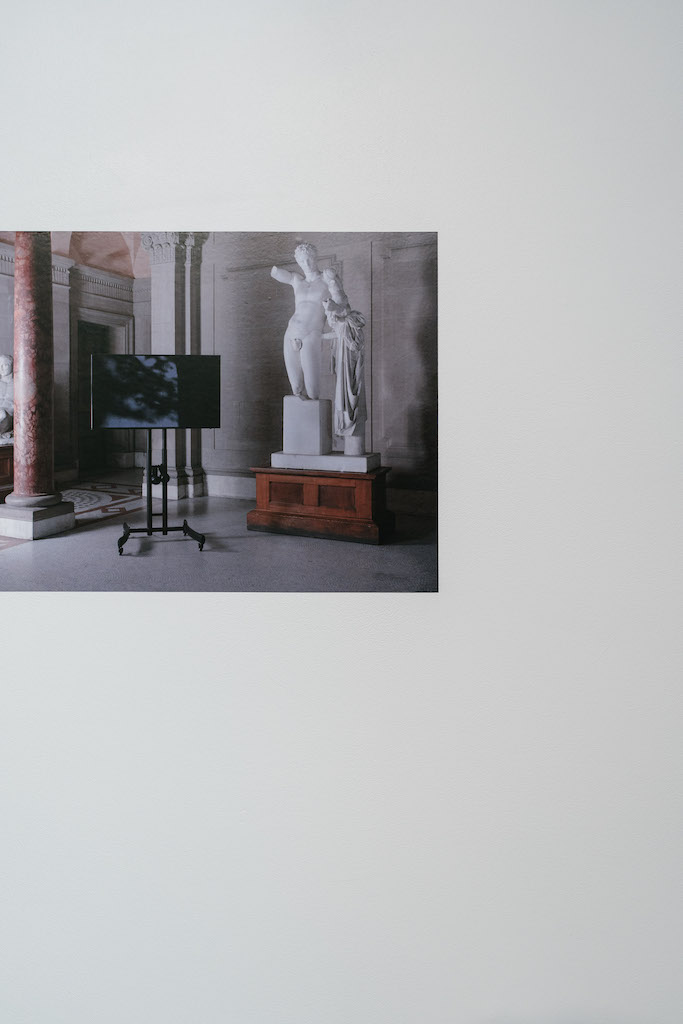


11565KM
11,565 Kilometers Project tracks the path of an artifact from the Shandong province (China) to the University of Pennsylvania Museum of Archaeology and Anthropology (USA). This work highlights issues related to the circulation of Chinese artifacts, the complexity of Chinese colonial histories. It portrays the long migration of this Chinese coffin, its historical colonial background, and the power dynamics within institutional museum collections.
Zhang utilized historical documents to shape his perspective of history; his exploration reflected the dynamic changes behind postcolonial Shandong. With Western historians and Chinese archaeologists’ help, Zhang collected hundreds of pieces of evidence of German and Japanese colonial occupation and their involvement in antique looting and acquisitions.
This project seeks to maintain cultural relics as carriers of history, and the intricate connection between the circulation looted artifacts and the collections of Western museums. When going through the process of textualization in museums, the historical narratives residing in artifacts are institutionalized and obscured by a form of “inauthenticity.” As participants of history, artists can prompt new historical narratives, as Zhang’s investigation through photography attempts to reconstruct artifacts’ original contexts and uncover veiled histories; the making of artifact’s specimens and archives employ material information to confront the muted historical narrative beyond textualization. The “imagined artifact exhibition” constructed upon the image and archive enumerated above can form new sites that interrogate the power dynamics of museum space and the cultural structures embedded within the institutional narratives of artifactual histories.
The practice of Beichen Zhang often manifests in the form of photography, essay films, mixed media installations and institutional research. His multimedia works query and investigate the relationship between cultural heritages and Asian colonial history, archive and geopolitical vicissitude, and the identity’s fluidity within a postcolonial context, with visual metonymy as a carrier of personal narratives that encompass archaeological and anthropological research. Zhang has exhibited on numerous international platforms, such as the 8th Daegu Photo Biennale in South Korea, the 34th Image Forum Festival in Tokyo, the 2022 Jimei X Arles International Photo Festival and more. He has received numerous international accolades, including the nomination for the Foam Paul Huf Award 2023, the nominations for the C/O Berlin Talent Award 2023, the Best Portfolio Prize of the 8th Singapore International Photography Festival (2022), the selected Artist of Top 20.21 Chinese Contemporary Photographer (2021) and more.
11,565 Kilometers Project tracks the path of an artifact from the Shandong province (China) to the University of Pennsylvania Museum of Archaeology and Anthropology (USA). This work highlights issues related to the circulation of Chinese artifacts, the complexity of Chinese colonial histories. It portrays the long migration of this Chinese coffin, its historical colonial background, and the power dynamics within institutional museum collections.
Zhang utilized historical documents to shape his perspective of history; his exploration reflected the dynamic changes behind postcolonial Shandong. With Western historians and Chinese archaeologists’ help, Zhang collected hundreds of pieces of evidence of German and Japanese colonial occupation and their involvement in antique looting and acquisitions.
This project seeks to maintain cultural relics as carriers of history, and the intricate connection between the circulation looted artifacts and the collections of Western museums. When going through the process of textualization in museums, the historical narratives residing in artifacts are institutionalized and obscured by a form of “inauthenticity.” As participants of history, artists can prompt new historical narratives, as Zhang’s investigation through photography attempts to reconstruct artifacts’ original contexts and uncover veiled histories; the making of artifact’s specimens and archives employ material information to confront the muted historical narrative beyond textualization. The “imagined artifact exhibition” constructed upon the image and archive enumerated above can form new sites that interrogate the power dynamics of museum space and the cultural structures embedded within the institutional narratives of artifactual histories.
The practice of Beichen Zhang often manifests in the form of photography, essay films, mixed media installations and institutional research. His multimedia works query and investigate the relationship between cultural heritages and Asian colonial history, archive and geopolitical vicissitude, and the identity’s fluidity within a postcolonial context, with visual metonymy as a carrier of personal narratives that encompass archaeological and anthropological research. Zhang has exhibited on numerous international platforms, such as the 8th Daegu Photo Biennale in South Korea, the 34th Image Forum Festival in Tokyo, the 2022 Jimei X Arles International Photo Festival and more. He has received numerous international accolades, including the nomination for the Foam Paul Huf Award 2023, the nominations for the C/O Berlin Talent Award 2023, the Best Portfolio Prize of the 8th Singapore International Photography Festival (2022), the selected Artist of Top 20.21 Chinese Contemporary Photographer (2021) and more.

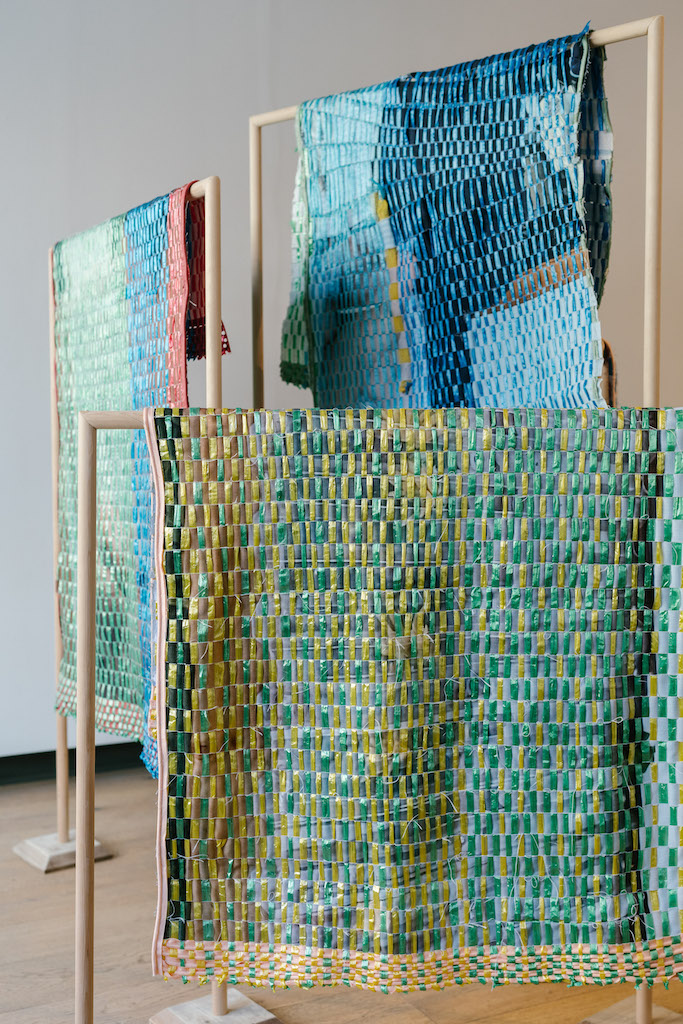
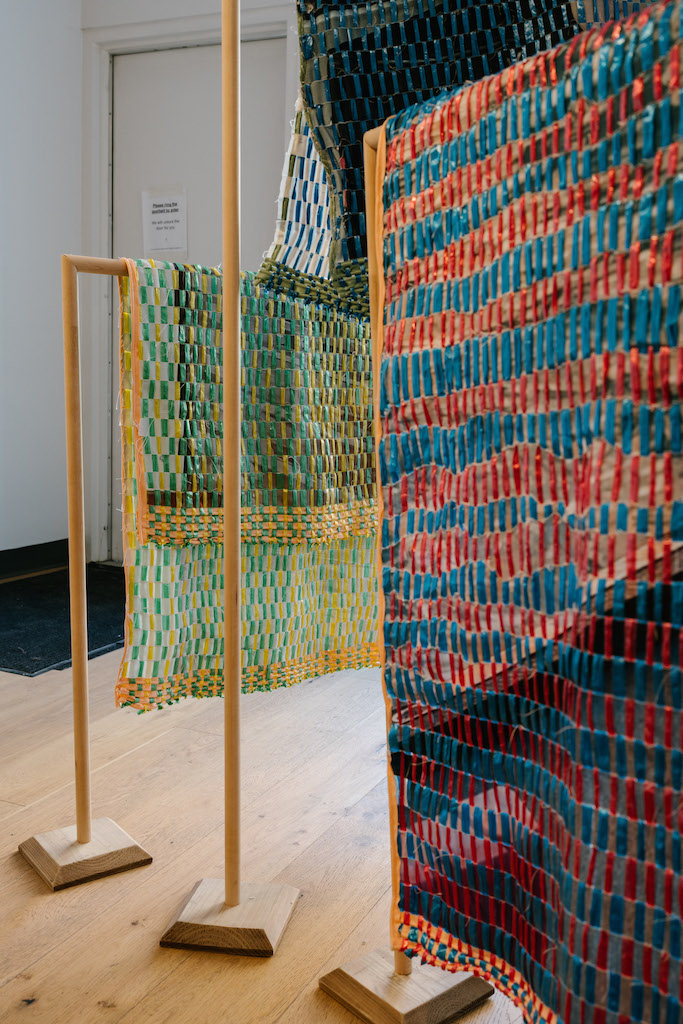
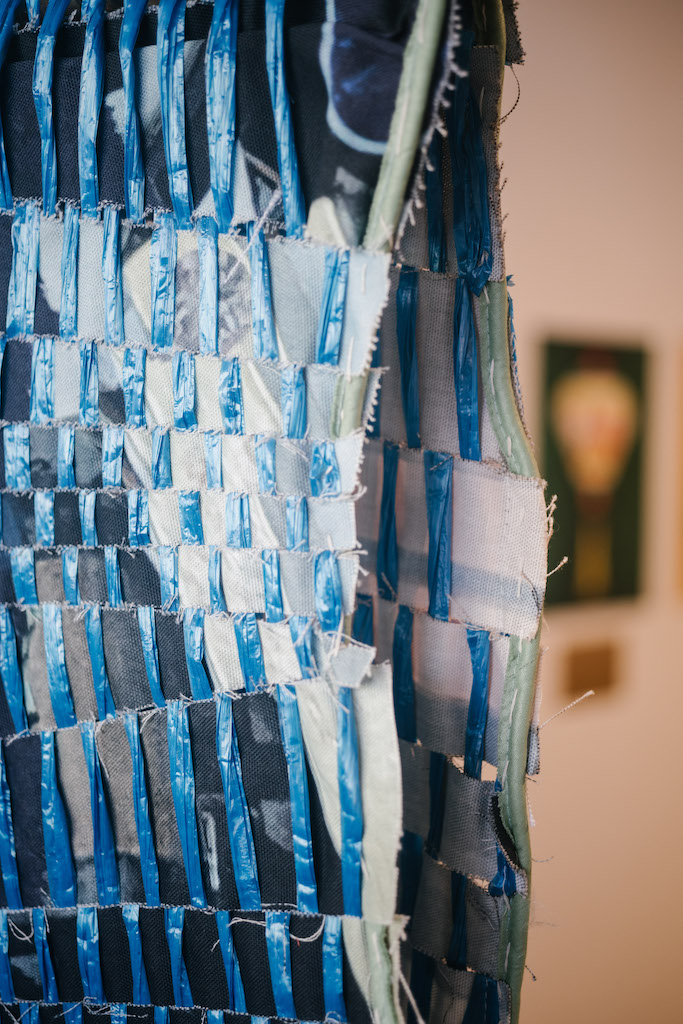
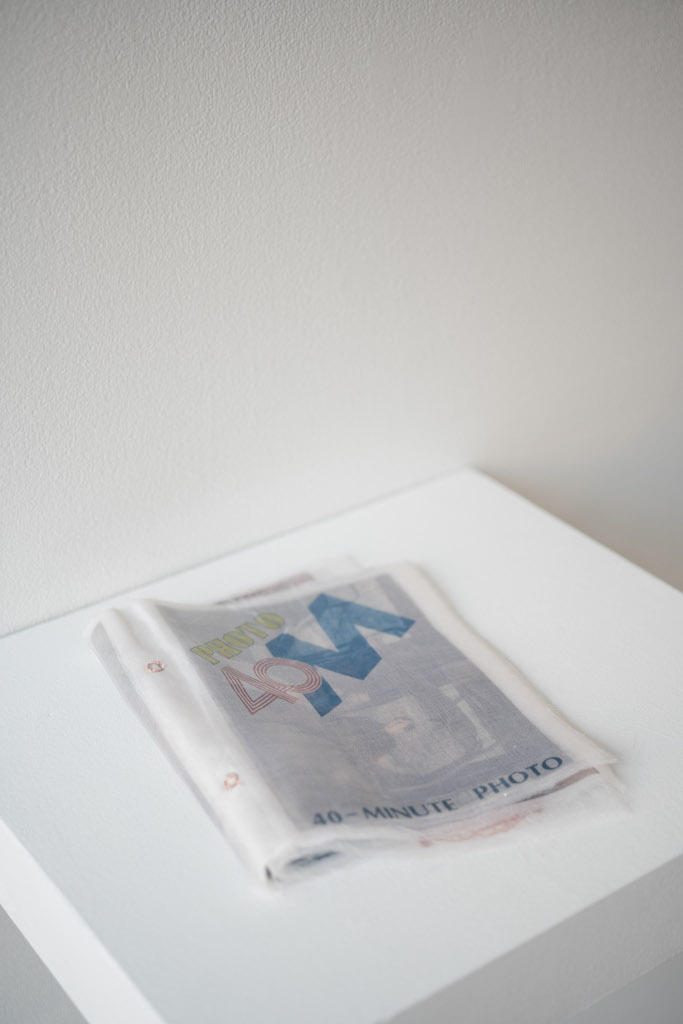
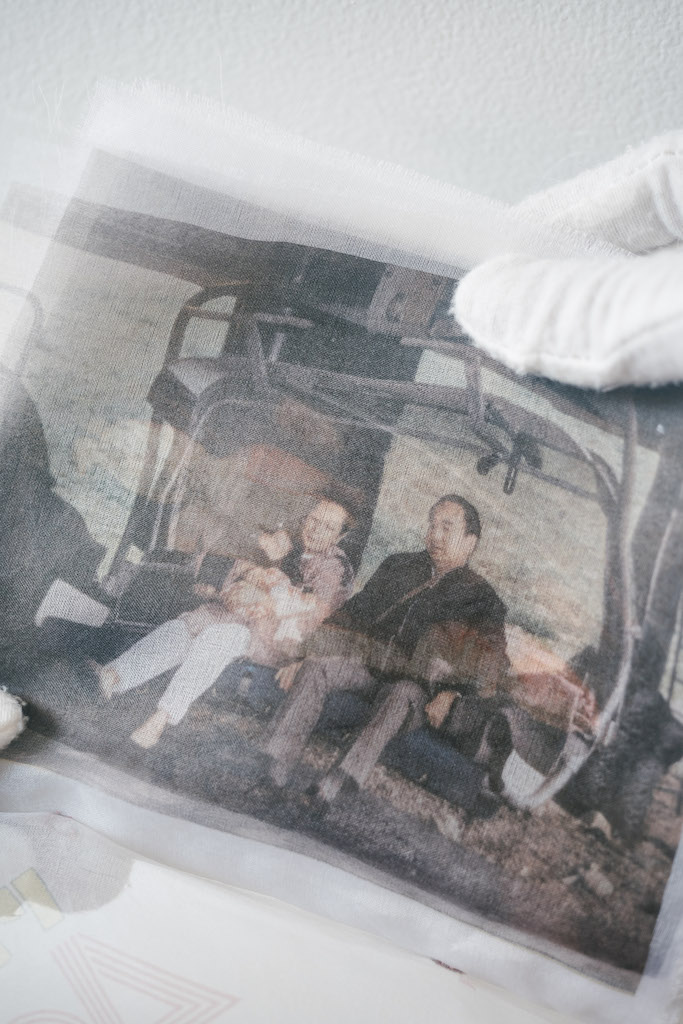
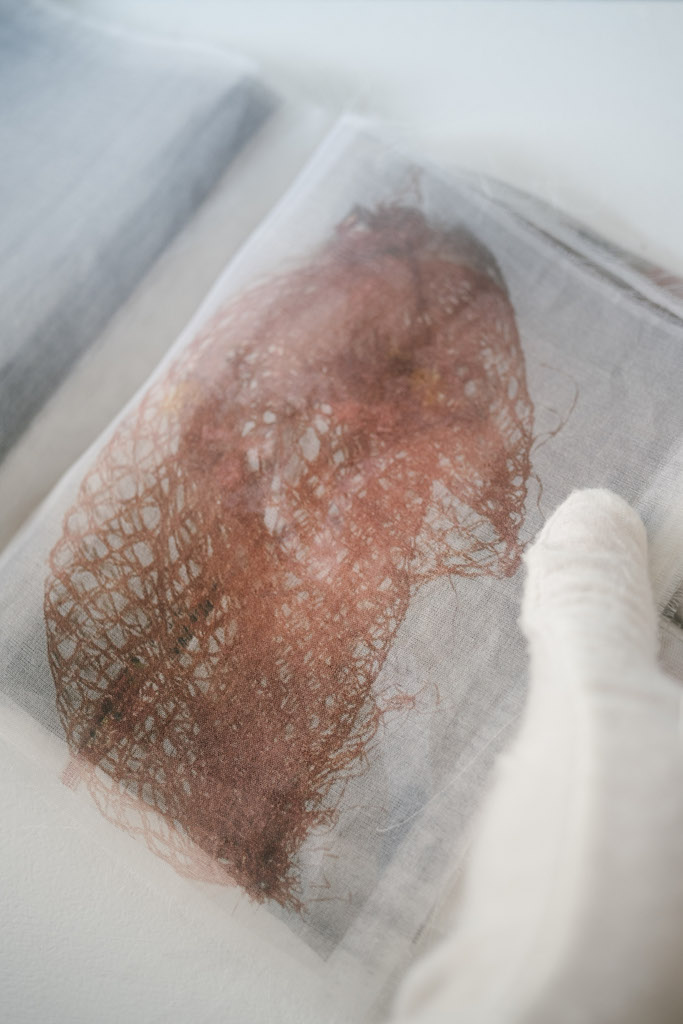
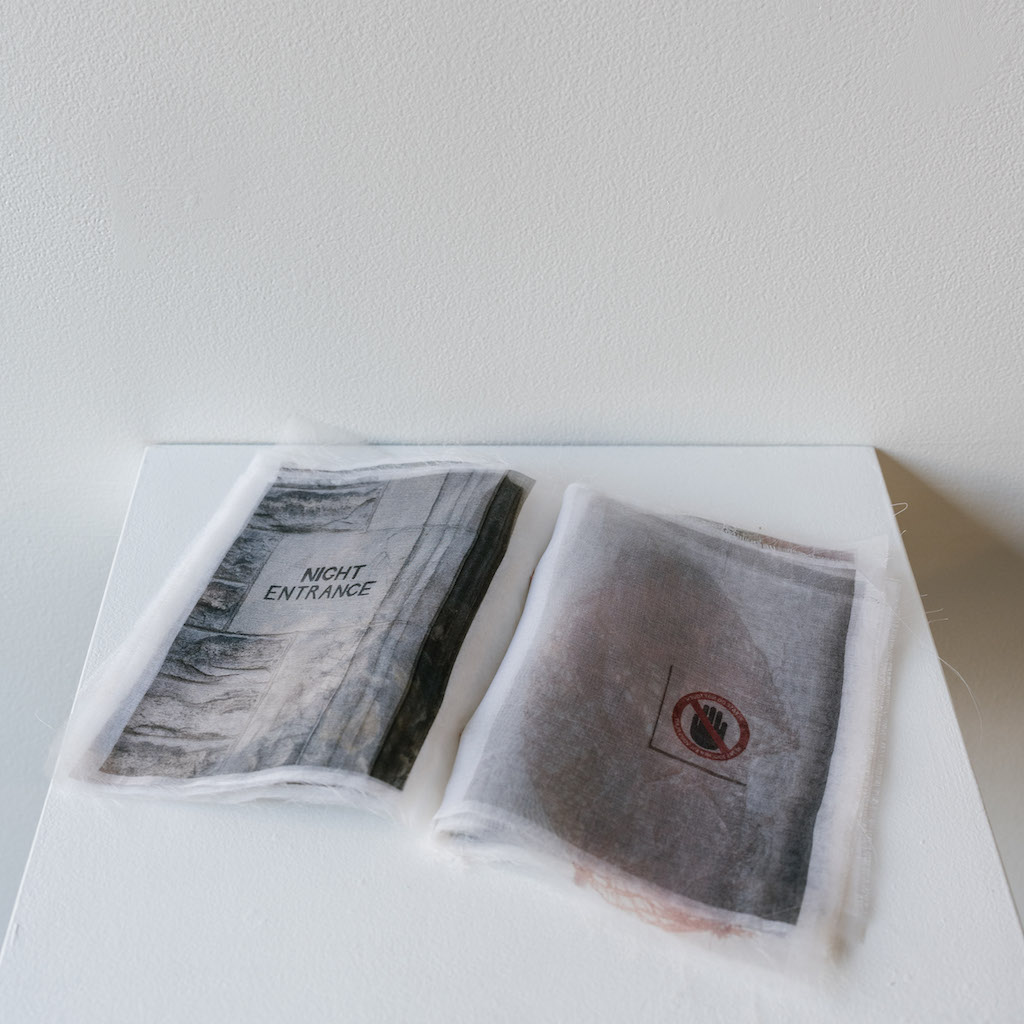
Recovered—Recipe Book
Misprints from Lan’s previous fabric photo prints were cut up and reassembled as weavings through plastic twine, the kind of cord they found all around them in Tkaronto’s Chinatown (where they live), typically used in fruit crates and newspaper packaging. The mundane materials mirrored their cellphone photograph, cluttering a digital archive with decontextualization. The resulting object takes on an accelerated loss of information, being made less legible from their reproduction. For Recovered—Recipe Book, the shiny red, green, and blue thread mimic RGB digital image rendering, the only remnant left of an artwork that got lost in shipping in 2022.
Lan “Florence” Yee is a visual artist and cultural worker based in Tkaronto/Toronto & Tiohtià:ke/Mooniyang/Montreal. They collect text in underappreciated places and ferment it until it is too suspicious to ignore. Lan’s work has been exhibited at the Textile Museum of Canada (2023-24), Darling Foundry (2022), the Toronto Museum of Contemporary Art (2021), and the Gardiner Museum (2019), among others. They obtained a BFA from Concordia University and an MFA from OCAD U as a Joseph-Armand Bombardier SSHRC scholar. Lan has been awarded grants from the Canada Council for the Arts, the Ontario Council for the Arts, and the Toronto Arts Council. They are a recipient of the William and Meredith Saunderson Prizes for Emerging Artists (2023). Lan is a member of JIA Foundation as curator of the Chinatown House MTL.
Misprints from Lan’s previous fabric photo prints were cut up and reassembled as weavings through plastic twine, the kind of cord they found all around them in Tkaronto’s Chinatown (where they live), typically used in fruit crates and newspaper packaging. The mundane materials mirrored their cellphone photograph, cluttering a digital archive with decontextualization. The resulting object takes on an accelerated loss of information, being made less legible from their reproduction. For Recovered—Recipe Book, the shiny red, green, and blue thread mimic RGB digital image rendering, the only remnant left of an artwork that got lost in shipping in 2022.
Lan “Florence” Yee is a visual artist and cultural worker based in Tkaronto/Toronto & Tiohtià:ke/Mooniyang/Montreal. They collect text in underappreciated places and ferment it until it is too suspicious to ignore. Lan’s work has been exhibited at the Textile Museum of Canada (2023-24), Darling Foundry (2022), the Toronto Museum of Contemporary Art (2021), and the Gardiner Museum (2019), among others. They obtained a BFA from Concordia University and an MFA from OCAD U as a Joseph-Armand Bombardier SSHRC scholar. Lan has been awarded grants from the Canada Council for the Arts, the Ontario Council for the Arts, and the Toronto Arts Council. They are a recipient of the William and Meredith Saunderson Prizes for Emerging Artists (2023). Lan is a member of JIA Foundation as curator of the Chinatown House MTL.
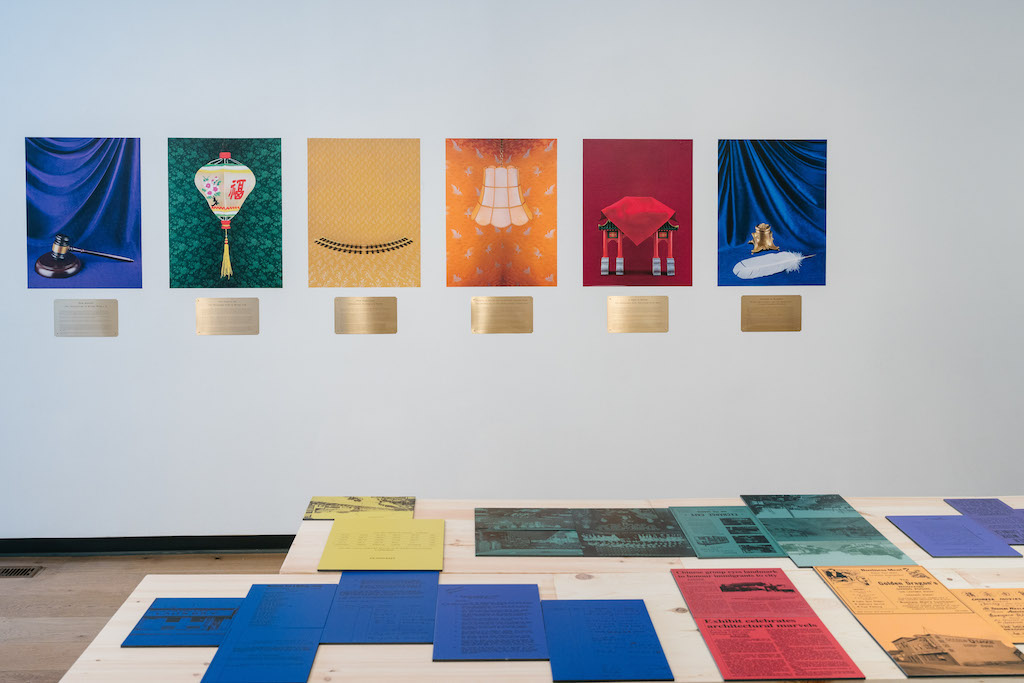
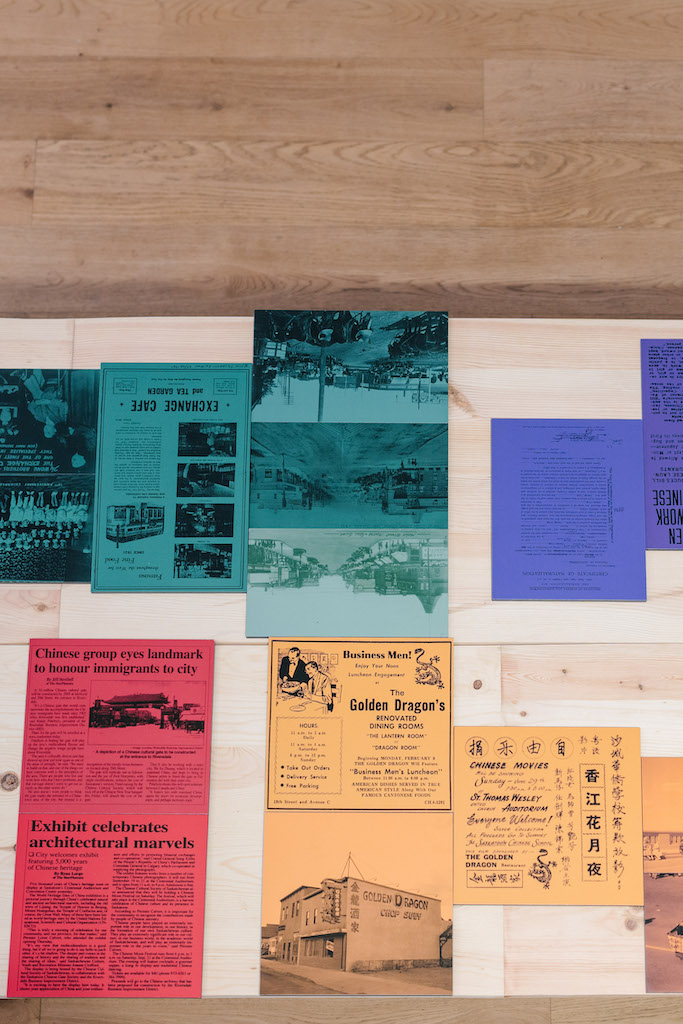






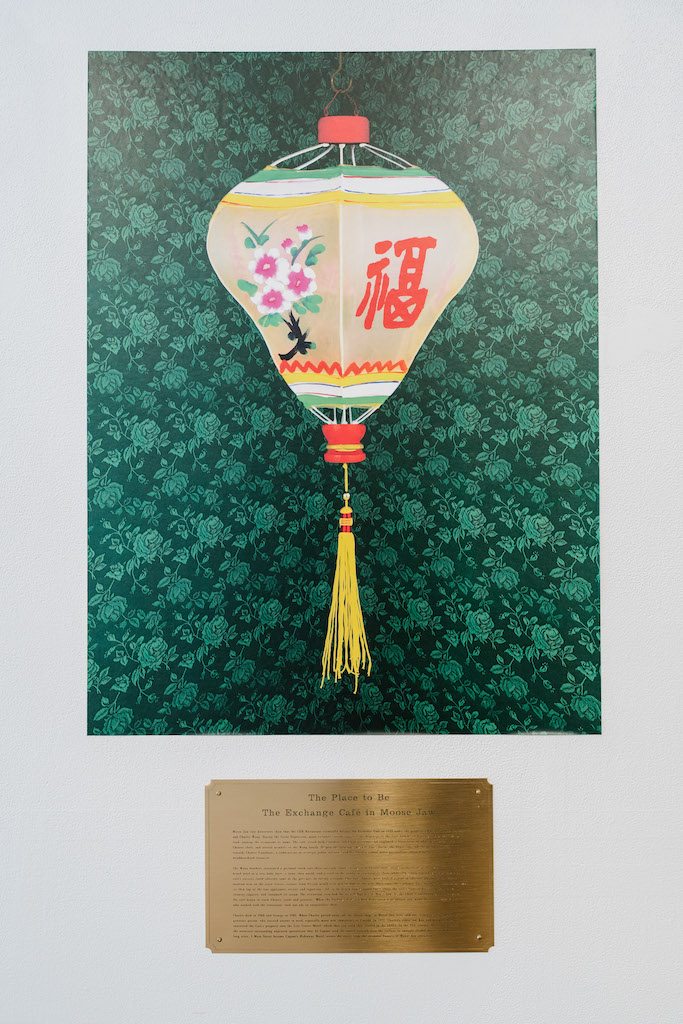
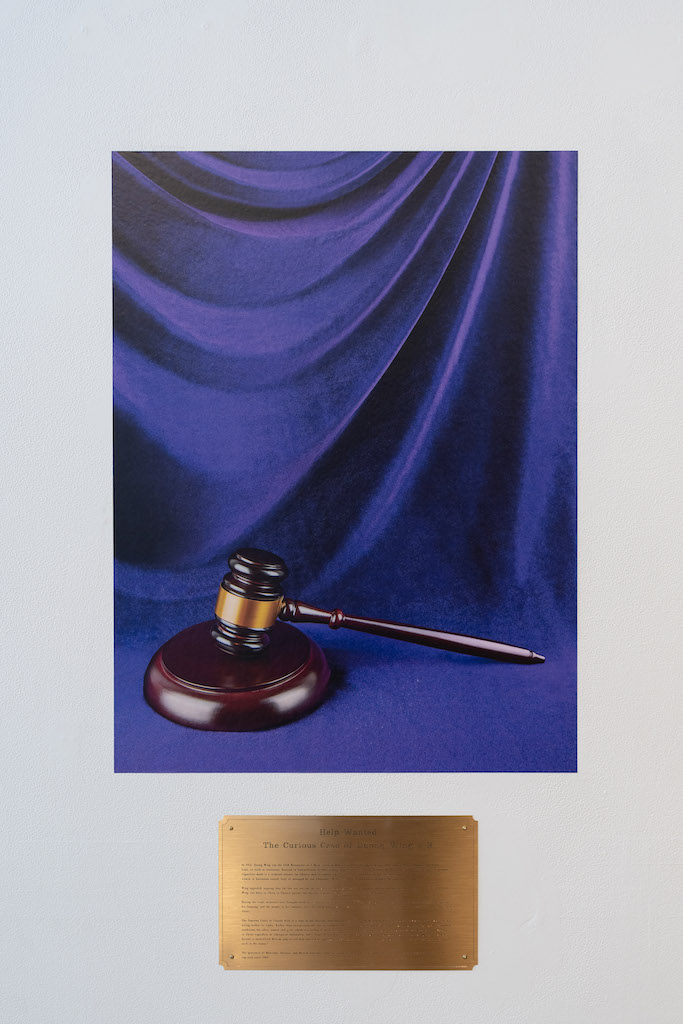
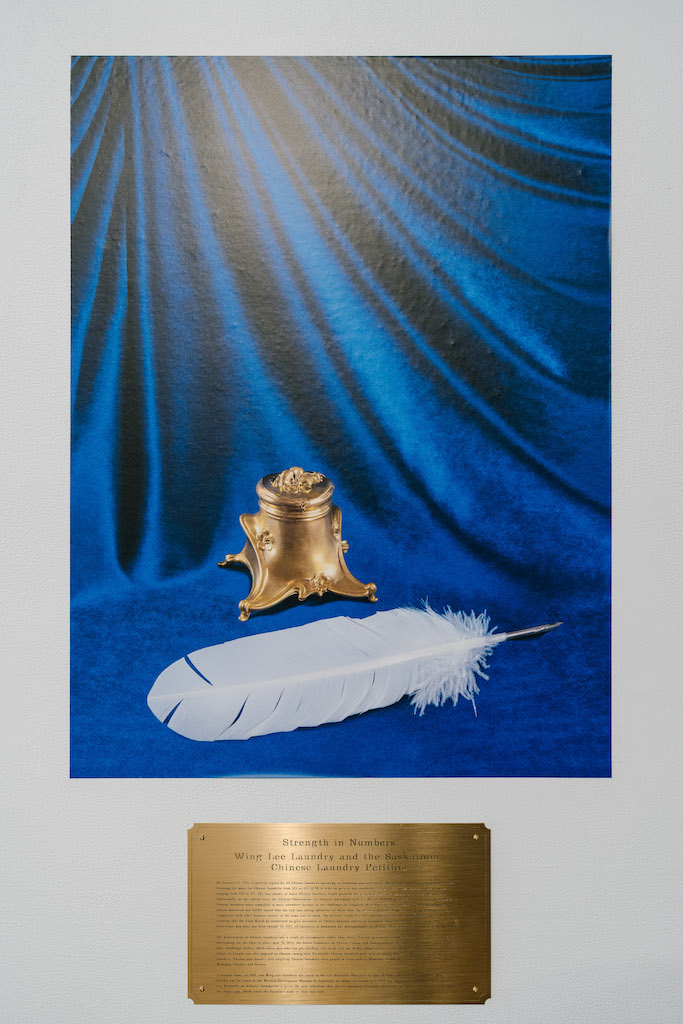
Believe it or Not
Believe it or Not developed from Shellie Zhang’s research in Treaty 6/Saskatoon. During this time, Zhang came across omitted and fictionalized narratives of early Chinese settlers which led her to search for accounts outside of the dominant historical context.
Referencing the murder mystery game Clue, each image and set of archival materials in the work serves piece together the stories she learned, with objects/props standing in as witnesses, evidence or recreations of them. Stories include focuses on the Quong Wing v Rex Supreme Court case, the Moose Jaw Exchange Café, a laundry tax petition in Saskatoon, a proposed Chinatown gate in Saskatoon, Saskatoon’s first Chinatown, and the Golden Dragon Café.
Believe it or Not is a case study on the politics of believability, how legacies of colonial narratives have been longstanding contributors to prevailing misconceptions of truth, whom the distance of fiction comforts and the power of local history.
Shellie Zhang creates images, objects and projects in a wide range of media to explore how integration, diversity and assimilation is implemented and negotiated, and how manifestations of these ideas relate to lived experiences. Zhang is interested in oral and local history, and how the objects and iconographies of culture are remembered and preserved.
Zhang has exhibited at venues including Asian Art Initiative (Philadelphia) and the Institute of Contemporary Art San Diego. In 2017, She was an Artist-in-Residence at the Art Gallery of Ontario. In 2021, she was a recipient of the Toronto Friends of the Visual Arts Artist Award. Her work is in public collections such as the Robert McLaughlin Gallery and the McMaster Museum of Art. Zhang is a founding board member of the Toronto Chinatown Land Trust. In Fall 2024, she will be pursuing a Master of Fine Arts in Sculpture at Yale University.
Believe it or Not developed from Shellie Zhang’s research in Treaty 6/Saskatoon. During this time, Zhang came across omitted and fictionalized narratives of early Chinese settlers which led her to search for accounts outside of the dominant historical context.
Referencing the murder mystery game Clue, each image and set of archival materials in the work serves piece together the stories she learned, with objects/props standing in as witnesses, evidence or recreations of them. Stories include focuses on the Quong Wing v Rex Supreme Court case, the Moose Jaw Exchange Café, a laundry tax petition in Saskatoon, a proposed Chinatown gate in Saskatoon, Saskatoon’s first Chinatown, and the Golden Dragon Café.
Believe it or Not is a case study on the politics of believability, how legacies of colonial narratives have been longstanding contributors to prevailing misconceptions of truth, whom the distance of fiction comforts and the power of local history.
Shellie Zhang creates images, objects and projects in a wide range of media to explore how integration, diversity and assimilation is implemented and negotiated, and how manifestations of these ideas relate to lived experiences. Zhang is interested in oral and local history, and how the objects and iconographies of culture are remembered and preserved.
Zhang has exhibited at venues including Asian Art Initiative (Philadelphia) and the Institute of Contemporary Art San Diego. In 2017, She was an Artist-in-Residence at the Art Gallery of Ontario. In 2021, she was a recipient of the Toronto Friends of the Visual Arts Artist Award. Her work is in public collections such as the Robert McLaughlin Gallery and the McMaster Museum of Art. Zhang is a founding board member of the Toronto Chinatown Land Trust. In Fall 2024, she will be pursuing a Master of Fine Arts in Sculpture at Yale University.


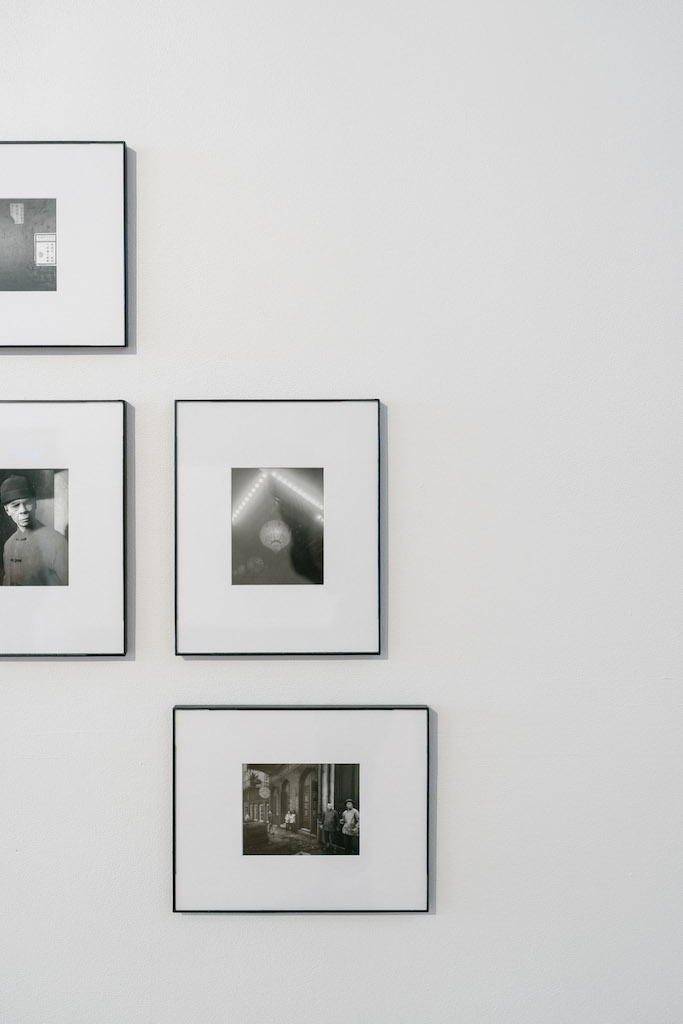

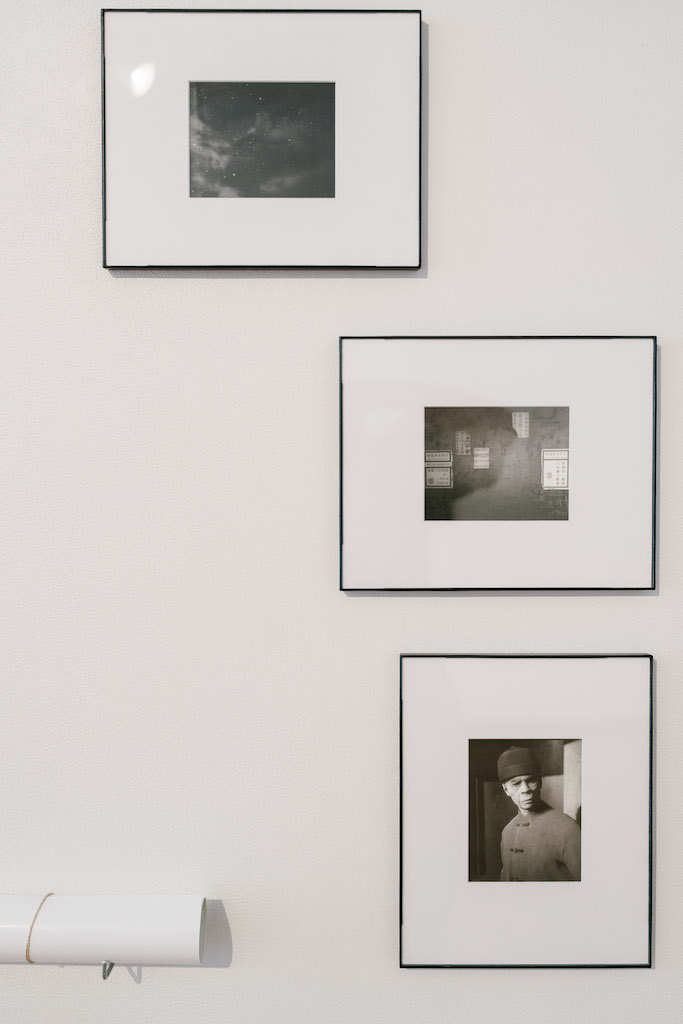
Central Union Railroad & Saint Denis
Central Union Railroad & Saint Denis investigates the history of Chinese migrant workers during the construction of the First Transcontinental Railroad between 1863 and 1869 in the USA. Through a series of darkroom contact prints with digital negative transfer film made out of video game screenshots, this body of work experiments with the materiality of photography across the digital and the analog and examines contemporary racial representations and historical narratives in the video game industry.
Yuxiang Dong (born 1990, Wujiang, Jiangsu Province, China) is an art, educational, and social worker. His current practices and research are driven by the contradiction between ethnography in the Anthropocene and speculation of object-oriented ontology. He received an Honorable Mention of the PhMuseum Photography Grant (2023) and was a longlist of The Lumen Prize for Art and Technology (2023) and a finalist of the Three Shadows Photography Award (2016). He has exhibited at Hermitage Museum & Gardens, Norfolk, VA (US), OCAT Institute, Beijing (China); Verzasca Foto, Canton of Ticino (Switzerland); Jakarta International Photo Festival, Jakarta, (Indonesia); PhMuseum Days, PhMuseum, Bologna (Italy); and other international venues. His documentaries and filmic works have been screened at Obskuur Ghent Film Festival (Belgium), Doc. Boston Documentary Film Festival (US), Stay Art Festival (China), and other global festivals.
Central Union Railroad & Saint Denis investigates the history of Chinese migrant workers during the construction of the First Transcontinental Railroad between 1863 and 1869 in the USA. Through a series of darkroom contact prints with digital negative transfer film made out of video game screenshots, this body of work experiments with the materiality of photography across the digital and the analog and examines contemporary racial representations and historical narratives in the video game industry.
Yuxiang Dong (born 1990, Wujiang, Jiangsu Province, China) is an art, educational, and social worker. His current practices and research are driven by the contradiction between ethnography in the Anthropocene and speculation of object-oriented ontology. He received an Honorable Mention of the PhMuseum Photography Grant (2023) and was a longlist of The Lumen Prize for Art and Technology (2023) and a finalist of the Three Shadows Photography Award (2016). He has exhibited at Hermitage Museum & Gardens, Norfolk, VA (US), OCAT Institute, Beijing (China); Verzasca Foto, Canton of Ticino (Switzerland); Jakarta International Photo Festival, Jakarta, (Indonesia); PhMuseum Days, PhMuseum, Bologna (Italy); and other international venues. His documentaries and filmic works have been screened at Obskuur Ghent Film Festival (Belgium), Doc. Boston Documentary Film Festival (US), Stay Art Festival (China), and other global festivals.
中文翻译 Chinese Translation
...

On August 30th, 2024 from 6-7PM there was a curators tour of Memory Lane where Brubey Hu and Simon Yantong Li of Tangent Collective guideded us through the works of Yuxiang Dong, Lan “Florence” Yee, Beichen Zhang, Shellie Zhang, and Andong Zheng. Afterwards was the opening reception of Memory Lane, in The New Gallerys Main Space.
